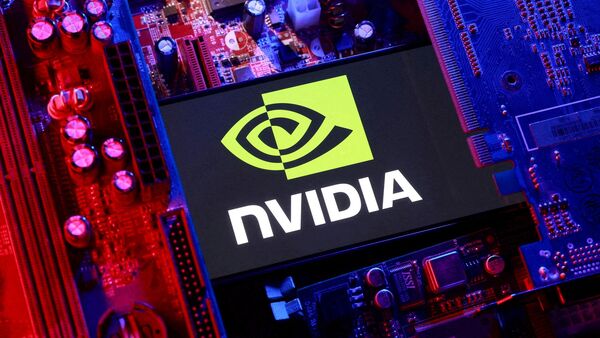Nvidia Caught in US-China Trade War Crossfire
Nvidia, the leading AI chipmaker led by CEO Jensen Huang, has become an unexpected casualty in the escalating US-China trade war. The company finds itself at the center of geopolitical tensions as both nations spar over tariffs, export restrictions, and access to critical artificial intelligence technology.
Key Takeaways
- Nvidia faces accusations of helping China bypass US export restrictions
- 25% of Nvidia’s GPU sales previously came from China
- US policy shifted from restricting to allowing chip sales with revenue sharing
- China responded with import restrictions on US AI chips
- New 100% tariffs announced by Trump could further escalate tensions
Nvidia’s Strategic Position in Tech War
The Santa Clara-based chip manufacturer has become a negotiation tool in President Donald Trump’s trade war with China. According to Gil Luria, head of technology research at DA Davidson, Nvidia’s dominance in AI chips has placed it at the intersection of trade disputes and national security concerns.
“Nvidia has gotten caught in the middle of two very important things: a trade dispute between China and the United States … but more importantly, AI has become a matter of national security,” Luria told CNN.
Export Restrictions and Policy Reversals
The US initially restricted China’s access to advanced chips, including Nvidia’s H20 processors, as part of efforts to limit Beijing’s AI progress. However, the White House recently reversed course with Commerce Secretary Howard Lutnick advocating for making Chinese developers “addicted to the American technology stack.”
In August, Trump approved an agreement allowing Nvidia and AMD to sell AI chips to China in exchange for 15% of their Chinese revenues going to the US government through export licenses.
China’s Response and Escalating Tensions
Despite the policy shift, Beijing has shown little enthusiasm. Since April, China has tightened import restrictions on US-made AI chips, including those manufactured by Nvidia. The situation further deteriorated when Trump announced plans for additional 100% tariffs on Chinese goods starting November 1, specifically targeting rare earth mineral export controls.
Nvidia CEO Jensen Huang has warned that restricting AI chip sales to China could backfire, potentially accelerating Beijing’s development of domestic alternatives. With the company previously deriving 25% of its GPU sales from China, the ongoing trade war continues to create significant uncertainty for the chipmaker’s future in one of its largest markets.




